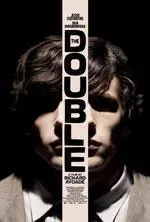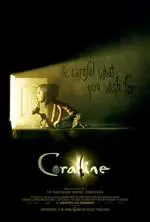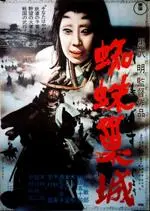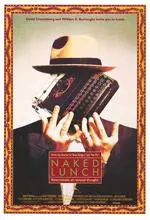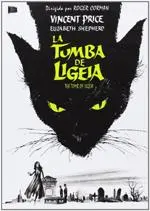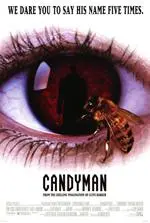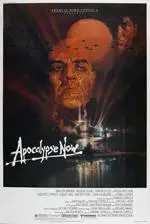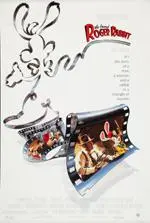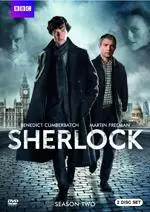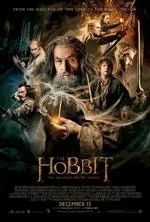I'm sure you've heard the term before in reference to movie translations of literary texts: loose adaptation. As bookish people, those two words can make us cringe sometimes, because we assume if an adaptation of a novel we love is loose, then it will undoubtedly be a "lesser than" experience, retaining none of the source material's awesomeness.
Problem is, nothing could be further from the truth. There are plenty of loose adaptations out there that work just as well as their literary counterparts, if not (gasp!) better. I've made this argument before with Jurassic Park in LitReactor's ongoing feature Book Vs. Film. Sorry, but I think overall Steven Spielberg and company offer audiences/readers a much better narrative experience than Michael Crichton did. I had similar feelings about World War Z, an excellent mockumentary-style book by Max Brooks that became an entertaining zombie-action movie of the same name. In this case, they're each rulers of their respective domains, and thus neither reigns supreme over the other.
Not convinced? Then let me offer up ten more well-made loose adaptations that stand on their own merits. Before we dive in, however, let's all get on the same page and define "loose adaptation" more thoroughly. According to Louis Giannetti, author of Understanding Movies, screen adaptations generally fall somewhere on the spectrum of three basic types: literal, faithful, and loose. Speaking of the last, he writes:
Generally, only an idea, a situation, or a character is taken from a literary source, then developed independently...A film that falls into this class is Kurosawa's Ran, which transforms Shakespeare's King Lear into a quite different tale set in medieval Japan, though the filmmaker retains several plot elements from Shakespeare's original...
I'd like to expand on Giannetti's definition and include any significant changes to characters—how they behave, their driving motivations, even their physical appearance—and changes in tone—dark to lighthearted, or vice-versa, dramatic to comedic, etc.
Every film discussed below employs at least two of these alterations outlined by Giannetti and myself, and yet still manages to deliver a narrative as enjoyable as its source material.
One more thing before we get started: for obvious reasons, neither Jurassic Park nor World War Z will appear on this list (well-covered territory). The same goes for The Shining, a great book and a great film with very different characterizations and familial dynamics, the differences of which are handled expertly by Karina Wilson in her Book Vs. Film from June 2012.
And finally, be warned: Spoilers lay ahead.
Okay, enough introduction. Let's do this.
![]() 1. 'The Double'
1. 'The Double'
For the most part, Richard Ayoade and Avi Korine's modernization of The Double retains the original novella's plot—a man's life slowly unravels after the sudden appearance of his doppelgänger. Moreover, both texts utilize surrealism and absurd comedy to highlight the protagonist's meekness, with Fyodor Dostoevsky poking fun at propriety and etiquette in contemporary Russia, while Ayoade and Korine examine the modern-day mundaneness of arbitrary bureaucratic processes. The similarities end there, however, as the film utilizes English/American name changes, a more recognizable Everycity setting, and a more developed love story. The most important change, though, deals with the protagonist, who is insufferably spiteful and paranoid in Dostoevsky's story, but comes across as genuinely likable and good in Ayoade's film, a distinction that makes his evil twin all the more villainous.
![]() 2. 'Coraline'
2. 'Coraline'
No doubt, Neil Gaiman's Coraline is a children's book that adults can enjoy too. Same goes for the stop-motion animated film of the same name, created by Henry Selick, though I would argue the movie is decidedly more "kiddie" than the novel. Now, don't get me wrong, this isn't a bad thing necessarily, just a difference. Still, it would be nice to see a version of Coraline that retains the muted color palette of rural England and keeps the truly terrifying horror elements intact. Case in point: the confrontation between the titular protagonist and her "other father." In the film, it plays as a special effects extravaganza and takes place outside, allowing plenty of places for Coraline to run. Yet, in the book, Coraline descends into the musty basement—lit only by a single light bulb—where she encounters something straight out of a Stephen King story. It still makes my skin crawl thinking about it.
![]() 3. 'Throne of Blood'
3. 'Throne of Blood'
Giannetti mentions Akira Kurosawa's Ran as a perfect example of a loose adaptation. That's a wonderful film, but I think I'm a bigger fan of Throne of Blood, the auteur's take on Macbeth. The Scottish Play has always been my favorite of Shakespeare's works, and Kurosawa's retelling, in my mind, is the best filmed version out there—even better than Orson Welles's more faithful adaptation. Set in feudal Japan and implementing aspects of Noh theatre, Throne of Blood features hypnotic performances from Toshirô Mifune and Isuzu Yamada as Lord and Lady Washizu respectively (the cursed, greedily murderous couple), gorgeous black and white cinematography, and a tight script by Kurosawa, Hideo Oguni, Shinobu Hashimoto and Ryûzô Kikushima. The "forest ghost" scenes are worth the price of admission alone. Seriously, see this movie.
![]() 4. 'Naked Lunch'
4. 'Naked Lunch'
David Cronenberg is a visionary filmmaker with surrealist leanings. A self-professed fan of William S. Burroughs, it is no surprise that, one, the director attempted to accomplish the impossible by bringing Naked Lunch to the screen, and two, that he did it his own way, intertwining actual incidents from Burroughs's real life with snippets of his infamous novel. The resulting film is far more accessible and poignant than its source material, but no less an enigma, reminiscent of Cronenberg's earlier film Videodrome, only much more depressing. Plus, according to the Motion Picture Association of America, Naked Lunch is rated R for "heavy drug content, language and bizarre eroticism" (emphasis mine). What's not to like?
![]() 5. 'The Tomb Of Ligeia'
5. 'The Tomb Of Ligeia'
The difference in titles says it all: "Ligeia" by Edgar Allan Poe explores (you guessed it) madness, via the opium-enhanced delusions of a widower who watches his new wife gradually transform into his dead ex, her grotesque reappearance coupled with love and arousal. The Tomb of Ligeia, however, promotes devotion to life—it's less about pairing sex and death as symbolized by the "corpse bride," as it were, as it is escaping the tomb of the raven-haired Ligeia and living happily ever after with the young, living-breathing blonde girl (even if things don't quite work out that way). Despite these tonal differences, there is much to love from this entry to the Roger Corman-directed series of Poe adaptations—everything from Vincent Price's weirdo persona and kooky side-paneled sunglasses, to the gothic castle setting and color-chiaroscuro lighting scheme, to the well paced screenplay by Robert Towne (who would go on to pen Chinatown). It's what I call a great "late night movie."
![]() 6. 'Candyman'
6. 'Candyman'
Clive Barker is a master at creating simultaneously grotesque and beautiful imagery, and Candyman—while not a film he directed—is one of the best examples of this. And yet, while much of the movie comes straight from Barker's novella The Forbidden (such as the titular character's hook hand and bee-infested torso), many of the movie's more iconic moments were created by writer/director Bernard Rose. He changes the setting from the slums of England to Chicago's troubled South Side, with protagonist Helen's study of interest shifted from graffiti to urban legends. Most significantly, however, Rose changes Candyman from a mysterious pale-white man with long blonde hair and a colorful patchwork outfit to a black man in a long, fur-collared coat, the ghost of a slave tortured to death for having an affair with a white woman. Thus, Rose creates not only a terrifying cinematic experience but also a social commentary on race relations and continuing segregation in America.
![]() 7. 'Apocalypse Now'
7. 'Apocalypse Now'
Maybe one of the most famous loose adaptations out there, Francis Ford Coppola's financially-troubled, drug-fueled, sanity-bankrupt film transplants Heart of Darkness—Joseph Conrad's 1899 novella—into war-torn 1960s era Vietnam. This shift in time represents the most significant change (apart from Martin Sheen's incarnation of Charles Marlowe tai-chi-ing to The Doors in his tighty whities), with the anti-imperialism message still very much intact. I've always felt Apocalypse Now falls apart the second Dennis Hopper shows up in the third act, stoned out of his mind (for real) and introduces us to Marlon Brando's barely intelligible Kurtz, but maybe that's the point—at the heart of darkness, utter madness void of any meaning reigns supreme.
![]() 8. 'Who Framed Roger Rabbit?'
8. 'Who Framed Roger Rabbit?'
Man, I used to watch this movie all the time when I was a kid. Little did I know at the time this fun and energetic blend of live action and animation was based on a dark, seriocomic murder mystery parody novel called Who Censored Roger Rabbit? by Gary K. Wolf. Robert Zemeckis's film and Wolf's novel are barely related to each other—cousins from opposite ends of the earth, threaded together only by characters Roger Rabbit, Eddie Valiant, Jessica Rabbit and Baby Herman, as well as the basic premise that cartoons and humans co-exist in the same reality. The book, however, centers around comic strip characters (as opposed to animated short stars) who literally speak in dialogue bubbles. Strips are created through still photos of the "actors" posing against various backdrops. For more technical or dangerous shots, the 'Toons can create temporary stunt doubles of themselves that dissipate into dust once they are no longer needed. Sometimes, these doubles linger longer, and so when Roger Rabbit is murdered (yep), his doppelgänger helps Eddie Valiant solve the mystery. As you can see, Wolf's novel is ten times weirder than the movie, hands down.
![]() 9. 'The Hounds of Baskerville'
9. 'The Hounds of Baskerville'
Okay, this one's technically a TV show episode, but at the same time, there are only three episodes of Sherlock per season, and each one runs about an hour and a half. So basically, they're TV movies, and those don't carry a negative stigma in England like they do here in the USA, primarily because the BBC puts a lot of money and care into their programming, as evidenced by this season two installment. Taken from Sir Arthur Conan Doyle's The Hound of the Baskervilles, regular series writer Mark Gatiss (who also plays Mycroft Holmes) adds a modern twist to this classic tale, exploring the dangers of secret government testing and experimentation and present-day "outside-the-box" warfare. A tight-knit mystery all around, with suspense ratcheting up every minute.
![]() 10. The Hobbit Trilogy
10. The Hobbit Trilogy
Speaking of Martin Freeman and Benedict Cumberbatch...I know I'm in the minority here, but I rather enjoyed the three Hobbit movies, despite the addition of non-Hobbit content to expand what would have been a single film into a trilogy—a strange situation indeed, as The Hobbit (collectively) is both a faithful and loose adaptation. I mean sure, significant chunks of the films were bald-faced spectacle and LOTR fan service, but is that such a bad thing? There's room in this world for entertainment purely for entertainment's sake. Even mindless entertainment has its place, and I wouldn't even call these movies mindless. You can definitely tell a lot of care and love from Peter Jackson and company went into the production, and all the actors are one hundred committed to their roles (even if one in particular had a difficult time with isolation against a green screen). But if you can't get past the differences, just look at adaptations altogether in this way: films are merely parallel universe incarnations of books, where details will always be slightly to extremely askew—always. The question you have to ask is, "Is this a good parallel universe, or a bad one? Can I stay here and appreciate the changes to the world I know, or do I have to run away screaming?"

About the author
Christopher Shultz writes plays and fiction. His works have appeared at The Inkwell Theatre's Playwrights' Night, and in Pseudopod, Unnerving Magazine, Apex Magazine, freeze frame flash fiction and Grievous Angel, among other places. He has also contributed columns on books and film at LitReactor, The Cinematropolis, and Tor.com. Christopher currently lives in Oklahoma City. More info at christophershultz.com
